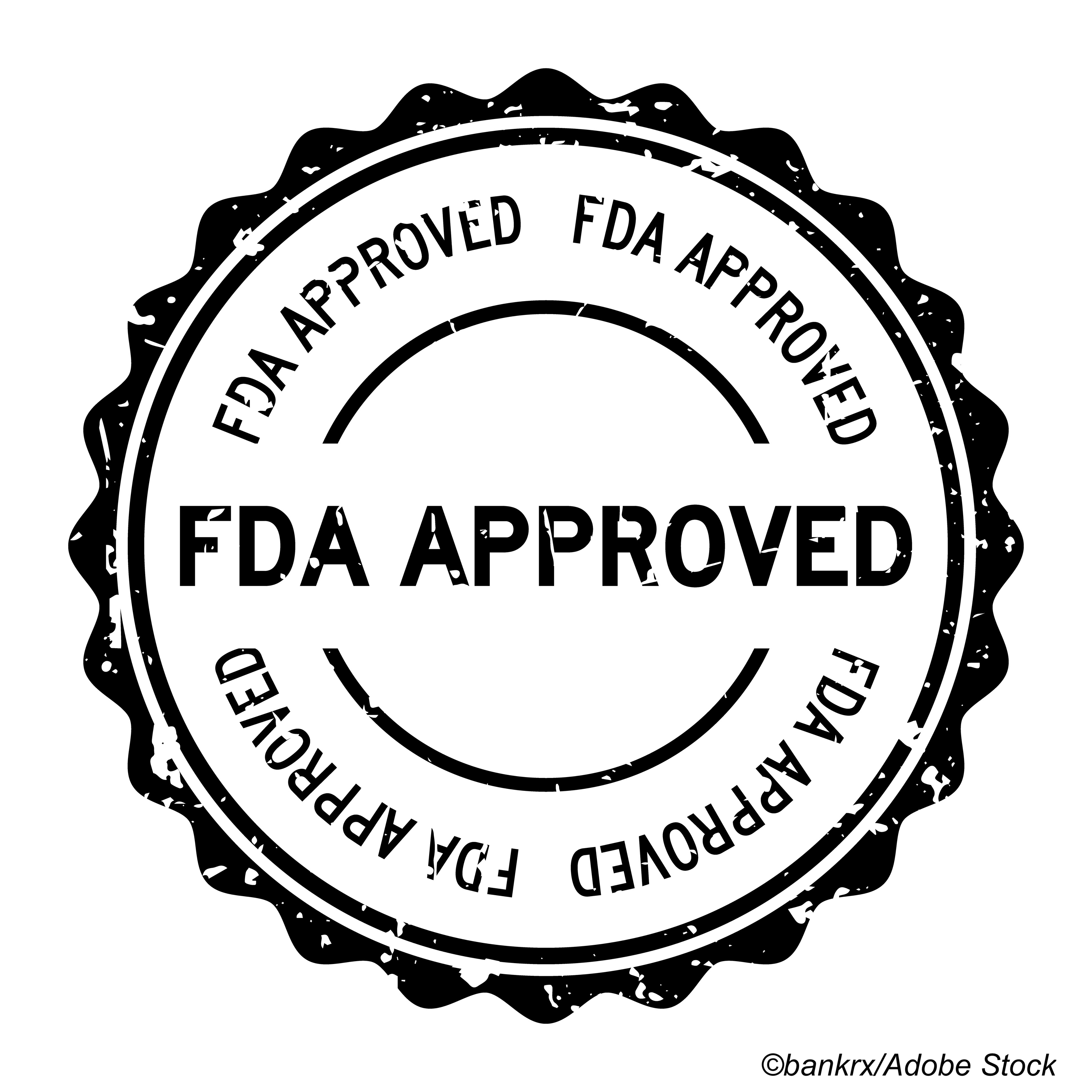As 2021 winds down, the FDA is cleaning house by issuing approvals that have been hanging fire for months. Today, the agency issued approvals for treatments for myasthenia gravis, diabetes, asthma, and venous thromboembolism.
Myasthenia gravis
The FDA approved efgartigimod (Vyvgart) a first-in-class medication for the treatment of myasthenia gravis.
Efgartigimod is “an antibody fragment that binds to the neonatal Fc receptor (FcRn), preventing FcRn from recycling immunoglobulin G (IgG) back into the blood,” the agency wrote in a press statement about the approval. “The medication causes a reduction in overall levels of IgG, including the abnormal [anti-acetylcholine receptor] AChR antibodies that are present in myasthenia gravis.”
The approval is based on a 26-week trial of myasthenia gravis patients that pitted efartigimod against placebo. The safety and efficacy trial found that 68% of patients with antibodies responded to treatment compared with 30% of those on placebo. They outcome of the trial was measuring daily function. “More patients receiving Vyvgart also demonstrated response on a measure of muscle weakness compared to placebo,” the agency noted.
“Side effects of the new medication include “respiratory tract infections, headache, and urinary tract infections,” the FDA wrote, noting that efgartigimod reduces IgG levels, which can increase the risk of infections. Other side effects may include “hypersensitivity reactions such as eyelid swelling, shortness of breath, and rash,” the agency added.
“There are significant unmet medical needs for people living with myasthenia gravis, as with many other rare diseases,” said Billy Dunn, MD, director of the Office of Neuroscience in the FDA’s Center for Drug Evaluation and Research, in a statement. “Today’s approval is an important step in providing a novel therapy option for patients and underscores the agency’s commitment to help make new treatment options available for people living with rare diseases.”
The approval for efartigimod was granted to argenx BV.
Diabetes
A second biosimilar insulin product for the treatment type 1 diabetes, insulin glargine-agir (Rezvoglar) was approved by the FDA. This product is biosimilar to insulin glargine (Lantus).
It is a long-acting human insulin analog used for glycemic control in pediatric patients and adults with type 1 diabetes, and for adults with type 2 diabetes.
“Rezvoglar, offered in 3 mL prefilled pens, is administered subcutaneously once daily,” the agency wrote in its press statement. The FDA noted that like insulin glargine, the new biosimilar should be individualized for each patient and not used if the patient is experiencing hypoglycemia or if patients are sensitive to insulin glagine products. It should also not be used to treat diabetic ketoacidosis.
Possible serious side effects associated with insulin glargine-agir include hypoglycemia, severe allergic reactions, hypokalemia, and heart failure. However, the most common side effect include edema, lipodystrophy, weight gain, and allergic reactions.
The approval for the new biosimilar was granted to Eli Lilly.
Asthma
Tezepelumab-ekko (Tezspire) injection was approved by the FDA for the treatment of severe asthma symptoms for adults and children age 12 years and older. It should be used as an add-on treatment to the patient’s current medication and is given as a subcutaneous injection once every four weeks.
“Tezspire is the first asthma treatment targeting thymic stromal lymphopoietin, a molecule involved in airway inflammation,” the agency wrote in its press statement about the approval. “Tezspire is also the first treatment for severe asthma that is not limited to a specific type of severe asthma.”
This approval was based on two clinical trials that showed the safety and efficacy of tezepelumab-ekko in patients who were given a 210-mg dose of the drug or placebo subcutaneously once every four weeks for a year.
“Participants receiving Tezspire had significant reductions in the annualized rate of asthma attacks compared to placebo,” the agency wrote. “Additionally, there were fewer asthma attacks requiring emergency room visits and/or hospitalization among participants treated with Tezspire compared to placebo. The benefits of Tezspire seen in participants weren’t limited by specific severe asthma type.”
The FDA warned that the drug should not be used for the treatment of short-term asthma symptoms or short-term asthma attacks.
AstraZeneca and Amgen manufacture tezepelumab-ekko and were awarded the approval.
Venous thromboembolism
Tablet and oral suspension formulations of rivaroxaban (Xarelto) were approved by the FDA to treat venous thromboembolism (VTE) and reduce risks of recurrence in pediatric patients from birth to <18 years old. Also approved is a new indication for rivaroxaban to prevent blood clots in pediatric patients aged 2 years and older with congenital heart disease after the Fontan procedure.
The tablet form of rivaroxaban was first approved in 2011, while the oral suspension formulation was just approved. Previously approved indications for rivaroxaban were for the treatment, prevention, or risk reduction of various clotting conditions in certain patient populations, as well as other cardiovascular indications.
Approval was based on results from the EINSTEIN Junior trial, in which 500 patients with confirmed VTE were randomized to treatment with rivaroxaban or standard-of-care medications for 3 months, and for 1-month in those less than 2 years old with central venous catheter-related VTE. In all, only 1.2% of children treated with rivaroxaban had signs/symptoms of recurrent VTE, compared with 3.0% of those treated with standard-of-care medications.
Results from the UNIVERSE study were also considered. Patients aged 2 to 8 years old with congenital heart disease who recently underwent the Fontan procure were treated with rivaroxaban for 1 year (Part A), or randomized to rivaroxaban or aspirin for 1 year (Part B). In all, 8.3% of Part A patients had a blood clot after 1 year of treatment, as did 1.6% of Part B patients, compared with 8.8% of those treated with aspirin.
Rivaroxaban is not recommended for children <6 months old born prematurely, those who have been fed by mouth for less than 10 days, and those weighing <5.7 pounds.
Contraindications include active major bleeding and serious allergic reactions.
Approval was granted to Janssen Pharmaceuticals.
Candace Hoffmann, Managing Editor, BreakingMED™
Cat ID: 110
Topic ID: 76,110,730,110,187,192,725,925



